Dementia and Alzheimer’s disease can significantly impact an individual’s cognitive function over time. As these conditions progress, it can become increasingly difficult for individuals to manage daily activities and maintain their independence. The question then arises: when is the right time to transition a loved one into memory care?
The decision to transition to memory care depends on several factors, including the individual’s physical and cognitive health, safety concerns, and their ability to manage daily tasks independently. While there isn’t a one-size-fits-all timeline, there are important factors to consider in making this decision.
Understanding the Progression of Dementia
Dementia is a progressive condition, meaning its symptoms worsen as time goes on. In the case of Alzheimer’s and other forms of dementia, cognitive abilities decline gradually, affecting memory, reasoning, and behavior. As the disease advances, it becomes harder for the individual to perform daily tasks, engage socially, and even remain safe at home.
Experts categorize cognitive decline into different stages to provide a clearer picture of the disease’s progression. From early-stage dementia to advanced stages, each stage requires varying levels of care and supervision. Understanding these stages is key in deciding when memory care might be needed.
Is It Possible to Start Memory Care Early?
While there’s no universal “right time” for everyone, early-stage dementia can still require more assistance than families might initially realize. In the beginning, some individuals may be able to live independently with minimal support. However, as dementia progresses, the challenges of self-care and safety become more apparent.
Starting memory care earlier can be beneficial, as it allows residents to adjust to a new environment while they are still able to engage and interact. Early memory care can also slow the progression of cognitive decline through regular assessments and enrichment activities tailored to boost brain function.
Key Signs It Might Be Time for Memory Care
There are several signs that indicate when it may be time to consider memory care for your loved one. These signs go beyond just forgetfulness—they often point to a decline in physical and cognitive health, social engagement, and overall safety.
1. Declining Physical Health
Physical health issues are often among the first indicators that it might be time for memory care. If your loved one experiences significant changes in their mobility, balance, or physical well-being, they may need more support.
Common signs to watch for include:
- Chronic fatigue or lack of energy
- Reduced mobility and frequent falls
- Muscle stiffness or tremors
- Inability to perform daily tasks, such as preparing meals or dressing
These physical challenges can affect a person’s ability to maintain their independence, making it increasingly difficult for them to care for themselves safely.
2. Declining Cognitive Health
Cognitive decline can manifest in various ways. Memory lapses become more frequent, and individuals may struggle with tasks that were once second nature.
Other signs of cognitive decline include:
- Difficulty concentrating or following conversations
- Forgetting names, dates, or appointments
- Trouble remembering to take medications—or taking them incorrectly
- Confusion about time, places, and familiar surroundings
As these cognitive challenges become more pronounced, safety becomes a critical concern. Dementia can cause individuals to forget basic routines, lose track of time, or even wander away from familiar environments.
3. Social Withdrawal
As dementia progresses, individuals often withdraw from social activities and interactions. They may feel overwhelmed or confused by conversations, making it difficult to maintain relationships or engage in hobbies they once enjoyed. This social withdrawal can exacerbate feelings of isolation, depression, and anxiety, which in turn can accelerate cognitive decline.
Memory care communities are specifically designed to combat these issues by providing a safe, engaging environment where individuals can participate in group activities and stay connected with others, fostering both cognitive and emotional health.
4. Safety Concerns
Safety becomes an increasing concern as dementia worsens. Individuals may forget to turn off appliances, wander outside, or even forget how to use household items properly. These risks can be dangerous to their health and well-being.
Additionally, the inability to manage personal hygiene or incontinence can create health risks that are difficult to handle alone. Memory care facilities offer a safe, structured environment where these concerns can be managed appropriately, ensuring your loved one receives the care they need in a secure setting.

Why Choose Memory Care?
Memory care is designed to meet the specific needs of individuals with cognitive decline. These specialized communities offer round-the-clock care, personalized attention, and therapeutic programs that focus on cognitive stimulation and emotional well-being. By making the transition to memory care, your loved one can enjoy a higher quality of life in a setting that promotes safety, comfort, and meaningful engagement.
If you’re wondering whether memory care is the right option for your loved one, we invite you to schedule a tour and see firsthand how our community can offer the support and care they need. At Ashleigh at Lansdowne in Leesburg, we are committed to helping your family navigate the journey with compassion and care.
Schedule a tour today to explore our memory care services and see if it’s the right fit for your loved one.













